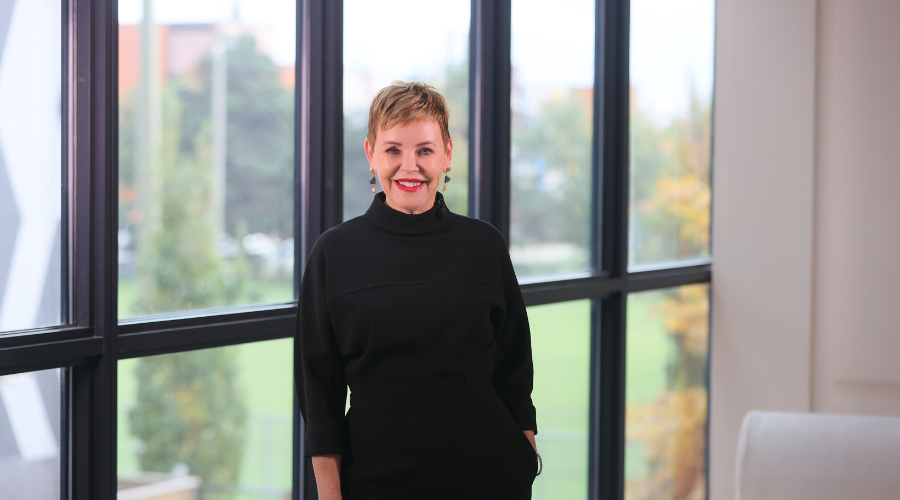By Joyce Wayne
As we age, longevity becomes a big issue. We talk about it. Think about it and wonder what our latter years have in store for us. Like me, you probably didn’t consider how long you would live when you were 16 or even when you turned 30. During the 1970s, no one over the age of 30 was to be trusted, so we would live in a society among those our own age, enjoying the perks of youth with its vitality and optimism.
Today, even The Washington Post looks at longevity from our point of view, so much so that it reports: “Our brains are built to change over our lifetime, meeting the challenges set by every life stage” and asks, “Do brains peak in childhood? Is it all downhill after 30? Can a 65-year-old brain keep up with an adolescent?” In an uplifting article explaining the different stages of brain development, an international team of researchers investigated the brain scans of 101,457 individuals ranging from a 16-week-old fetus to the brain of a 100-year-old.
From birth to middle age, we tend to believe our brains are learning and adapting, with ages 29 to 39 as the peak development. According to the Post, “The mid-to-late 20s are often thought of as a kind of “peak” of brain development or an example of when the brain has “matured.” This myth stems in part due to the observation that white matter volume, a proxy for the “speed” of information processing, reaches a high level at these ages.” But the information gleaned from more than 100,000 brain scans tells a different story. Although we might forget where we last left our keys, or someone’s name, new research shows that our brain’s ability to react to change does not diminish as we grow older.
“Everyone feels like brain plasticity goes away as you get older and neurons just die,” remarks researcher Mark Harnett, associate professor of brain and cognitive science at MIT, but he thinks differently. “Here we found something that’s really robust. It’s like, hey, there’s all these silent synapses and all this extra plasticity capacity in the aging adult cortex. That’s awesome. We didn’t know that was there. That’s super exciting!” New research is discovering that the brains of older individuals have the potential for greater wisdom built from a lifetime of experience and learning.
During my latest book club meeting, I admitted to having trouble recalling the characters’ names in our reading selections. It’s a Canadian Federation of University Women (CFUW) monthly get-together. All the participants are voracious readers, so I assumed I was the only one experiencing these issues. Not so. Other book club members joined in, announcing they were experiencing a similar problem to mine and that they took notes to help them remember character and plot, a tactic I, too, will use now.
Yet, our forgetfulness seldom precludes an energetic and insightful discussion of the novel we’re reading. I’m always interested in the opinions of the others in the group and how they analyze the books we review together, even if some of us forget where we laid down our car keys a half hour earlier. The book club members are brainy and curious about new ideas and social and political trends. We never fail to trade book, movie and television screening suggestions since everyone enjoys reading, watching and experiencing new activities.
***********
“I don’t think that we provide the respect to the aging and the wisdom that people accumulated throughout a life span,” says BJ Casey, professor of neuroscience and psychology at Barnard College, specializing in adolescent brain development. Still, as longevity increases, brain tissue resilience and the ability to make connections will become an issue for us and the medical system. Along with the desire to age in place — the norm for almost 100 percent of Canadians– must come new strategies to keep us healthy, safe, and satisfied in our homes.
At the Rotman School of Business at the University of Toronto, the film “Your Hundred Year Life” was screened earlier this year. I discovered that today 80 million baby boomers are moving into retirement. Most are “under saving” and “under planning” for older age. One contributor to the film said, “Our brains are not made to anticipate old age,” yet researchers are discovering that our brains can successfully adapt to new circumstances as we grow older.
After the film’s screening, Jen Recknagel, the director of innovation and design at the University Health Network’s NORC Innovation Centre in Toronto, stressed that older adults need more support networks to help them age in place. Recknagel is pioneering NORCs, or naturally occurring retirement communities, where home care is being re-imagined in the form of communities of aging Canadians who adapt buildings or possibly neighbourhoods into delivery centres forservices and support.
With only 350 certified geriatricians in Canada, it’s crucial that we innovate and re-design various dimensions of health and social services for those of us intent on aging in place. Lately, I’ve been considering talking with my neighbours in our townhouse complex about the prospect of setting up a telephone community hotline where we call each other regularly to ensure we’re okay. It’s an idea whose time has come.































